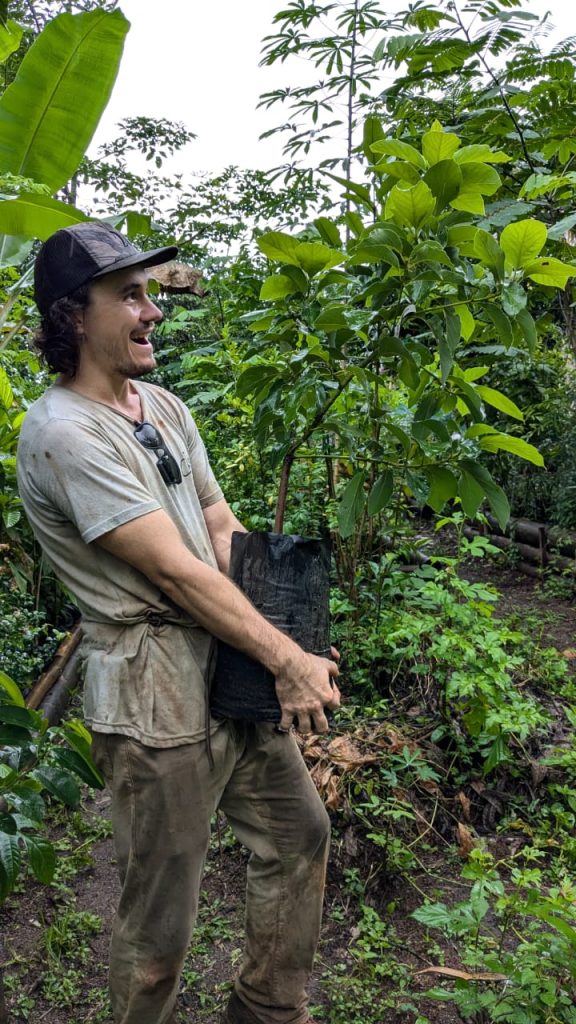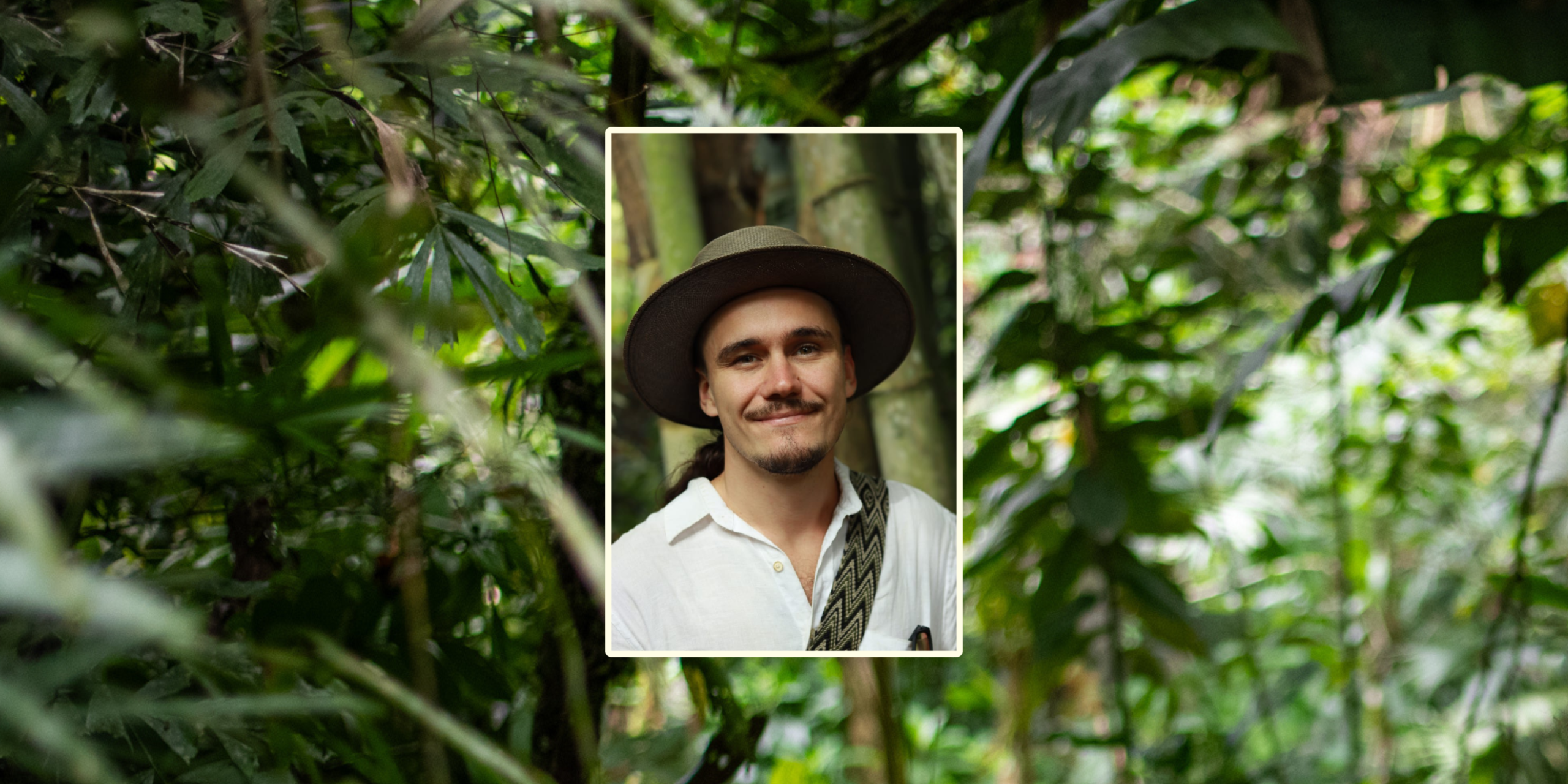During his studies and after graduating from EARTH in 2014, Sam Hansen (United States) took the knowledge he gained at the University around the world. After working on a vegetable farm in Jamaica and a fruit orchard in California, Sam eventually returned to Costa Rica and started a kombucha business. After accomplishing a successful project and selling it, he joined Rancho Mastatal, a sustainability education center in Puriscal, Costa Rica. There, Sam wears many hats – from managing agroforestry and fermentation to teaching courses on permaculture and natural building. Overall, Sam’s work is focused on sustainable community development that is guided by permaculture ethics: Earth Care, People Care, and Fair Share.
More than an educational retreat center, Rancho Mastatal is a community rooted in environmental sustainability, meaningful and place-based livelihoods, and caring relationships that seeks to uplift the local community and economy. Sam reflects that one of the most valuable things that he experienced throughout his EARTH education was the focus on sustainable community development, which he continues to incorporate into his work.

Prior to applying to EARTH, Sam – who grew up in Costa Rica – began studying Physics and Environmental Science at a university in the United States. With uncertainty about how he would utilize his degree after graduation, Sam decided to look for an academic career that felt more meaningful and applicable. He made his way back to Latin America, and a friend mentioned EARTH. Despite growing up around agriculture, Sam hadn’t considered that Agricultural Sciences could be part of his story.
Upon his arrival to EARTH, Sam felt a sense of purpose and quickly came to appreciate the practicality of the education: he engaged in hands-on field and community work that, according to him “cemented the foundations for good work ethic and technical knowledge”. Sam was fascinated by the quality of his professors and their unique passions. “It allowed me take snippets of everyone’s expertise and form it into a super multidisciplinary agronomy experience,” he shares.
Sam describes the labs and farms on campus as a “playground” where he was able to explore with curiosity and learned as much as he could. He was particularly fond of the Organic Farm, where he learned about the mandala system of farming, which remains an important part of his work today. In his permaculture design classes, he uses this mandala system to teach how to organize a farm and to emphasize that farming is about following the cycles of nature. “It is at the foundation of humanity to learn how we depend on farmers to live every day,” Sam reflects.
Working at Rancho Mastatal allows Sam to fully embrace what he learned at EARTH, not only by incorporating and sharing his technical knowledge, but also in terms of how he approaches community development. Sam and the Rancho Mastatal team focus on local community growth and supporting their neighbors. They employ the permaculture ethic of Fair Share by increasing the accessibility of their courses to their neighbors and buying products from nearby producers to keep their investments as localized as possible. Last year, 65% of the organization’s expenses went directly into the community in which they live. Just as EARTH taught Sam to live in harmony with his neighbors, he continues to approach agriculture as a community effort.
From teaching courses and supporting his local community, Sam sees how his work has a ripple effect, and he is always looking for ways to make a bigger impact. Recently, he has been researching ways to raise funds for ecological regeneration. He is thinking bigger about how to produce and serve people high quality, nutritious food in a sustainable way while incorporating land restoration techniques. He seeks to place value on pieces of land that have been degraded by human actions and realize their potential for regenerative projects. He hopes this will have a snowball effect, creating positive impact for people and the planet.
